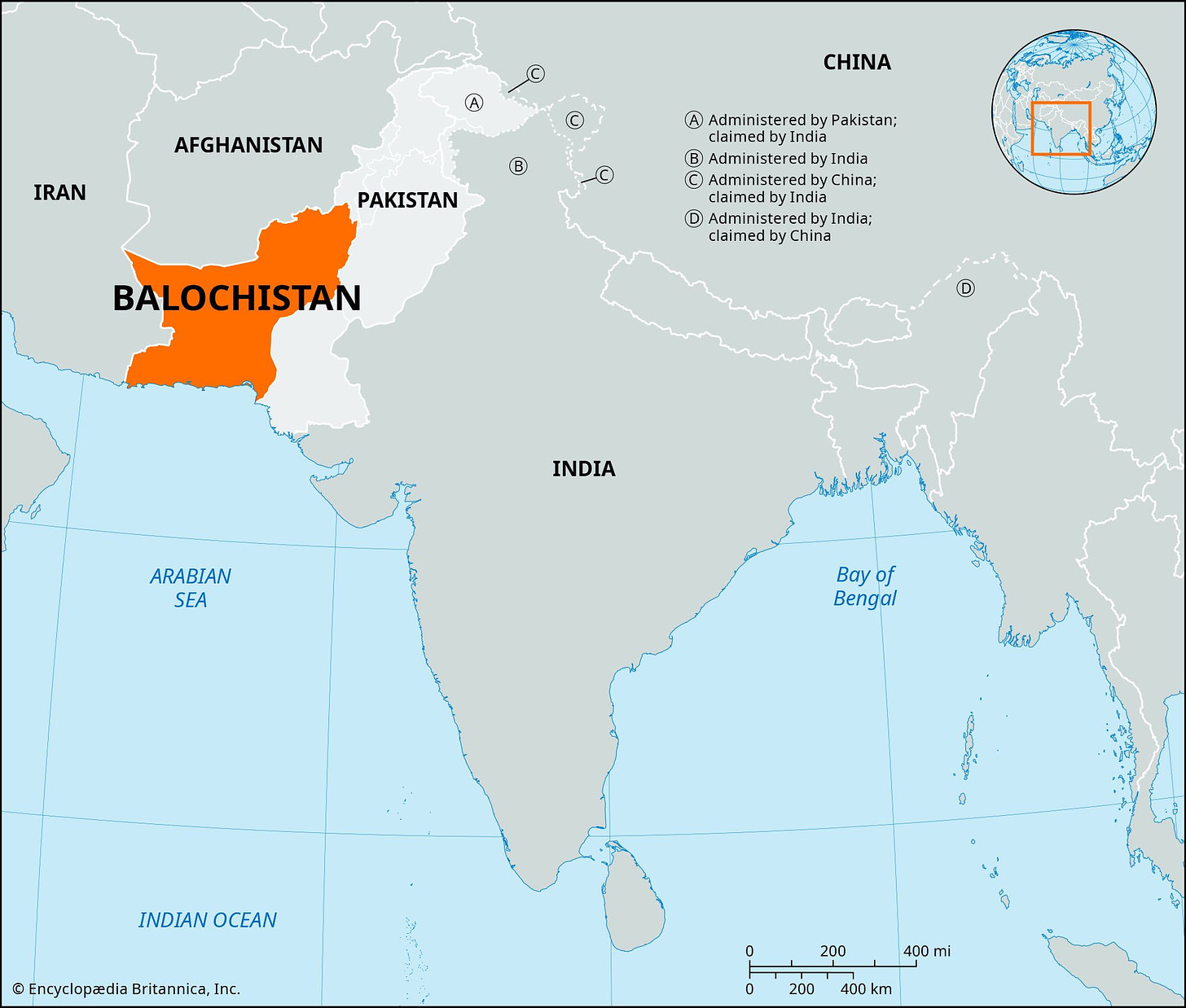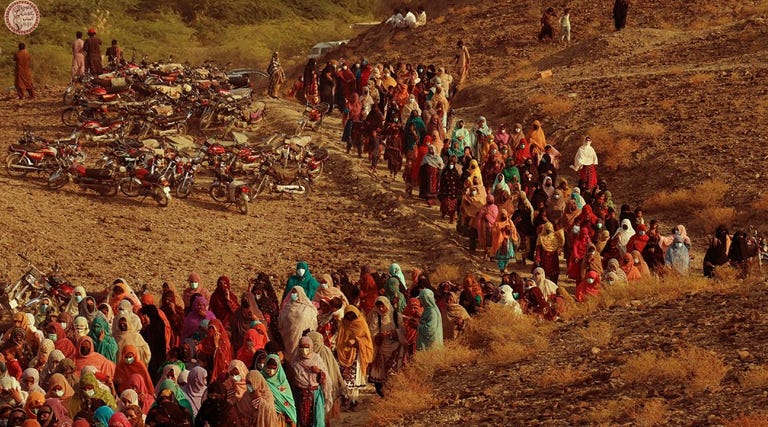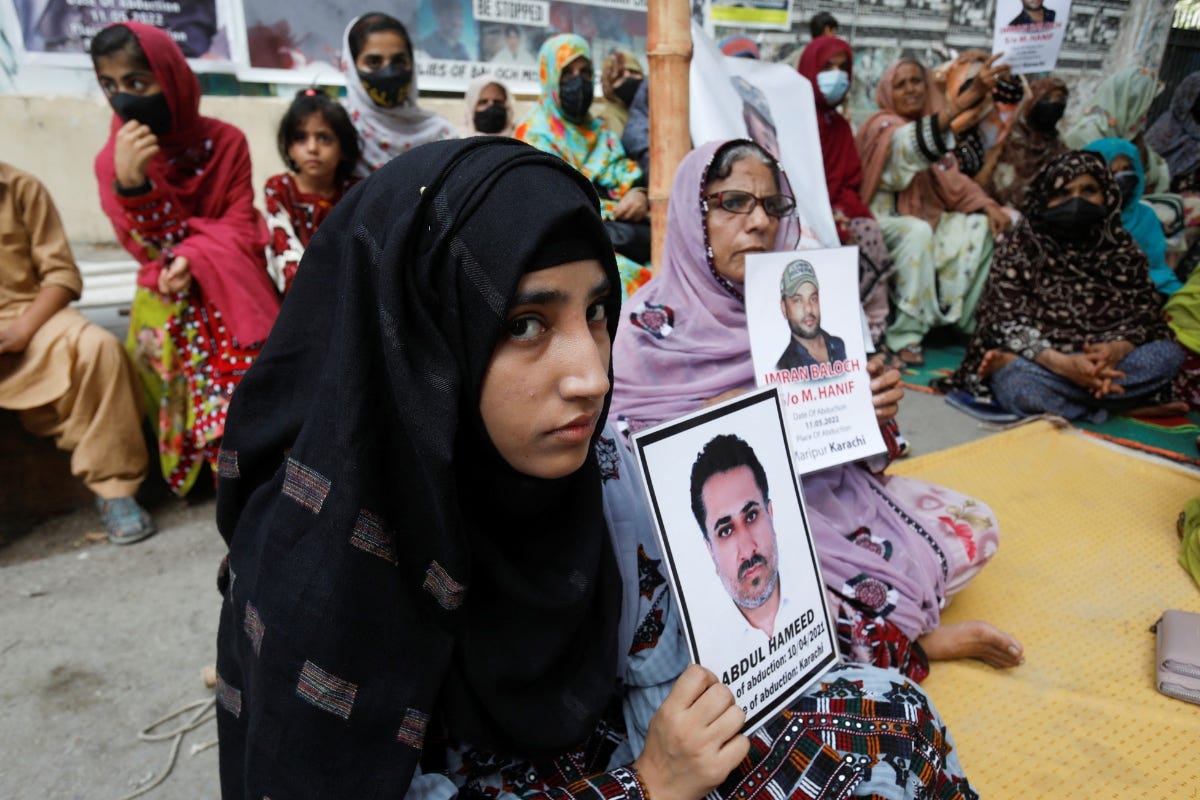
Mahrang Baloch raises issue of enforced disappearance in Pakistan
ANI
10 Dec 2024
Balochistan [Pakistan], December 10 (ANI): Raising the issue of enforced disappearances in Pakistan, prominent Baloch activist Mahrang Baloch has said that five Baloch people have been forcibly abducted in Karachi. While observing Human Rights Day, she said that Baloch people have been raising demand for their right to live and exist without fear in their own homeland.
She said that Miraj Shad, Doda Elahi, Ghamshad Baloch, Muzammil, and Ismail have been forcibly abducted. She mentioned that Doda Elahi and Ghamshad Baloch, who were previously abducted and forced to abondon their studies after release, had resumed their education have been abducted again.
In a post on X, Mahrang Baloch stated, "What could be more devastating for a Nation than the daily enforced disappearances of its students ? In Karachi, Miraj Shad, Doda Elahi, Ghamshad Baloch, Muzammil, and Ismail have been abducted. Doda Elahi and Ghamshad Baloch, who were previously abducted and forced to abandon their studies after release, had recently resumed their education but have been abducted again.""Meanwhile, three brothers--Irshad, Mureed, and Mehboob Baloch--were forcibly disappeared from Mungochar, Kalat. Their families are protesting, blocking the main RCD highway, demanding their release. On this Human Rights Day, the Baloch people are not only seeking justice--they are demanding the right to live and exist without fear in their own homeland, from a state that has denied them their very humanity," she added.
The students were taken into custody at around 1 am (local time) on Monday from Karachi's Hassan Square area and their whereabouts remain unknown, The Balochistan Post reported.
The students are from different parts of Balochistan, The Balochistan Post reported, citing sources. Doda Ellahi is from Kech's Balnegor, Ghamshad hails from Mand, Muzammil is from Pasni, and Mehraj is from Turbat's Absar. All four Baloch students were living in Karachi for their studies.
In a separate incident, Ismail, a resident of Mand, and a relative of Gamshad Baloch, has also been reportedly forcibly disappeared from Hassan Square in Karachi. According to reports, he is currently working and living in Dubai and arrived in Pakistan a month earlier for her mother's medical treatment in Karachi, according to The Balochistan Post report.
This is not the first time that some of the Baloch students have been subjected to enforced disappearance. Earlier on June 7, 2022, Doda Ellahi and Ghamshad were forcibly taken during a raid in Karachi's Maskan Chowrangi area. Later, they were released on June 14, 2022, but they have now been detained again.
(ANI)
Balochistan’s Enforced Disappearances:

In Balochistan, an area facing significant human rights issues, women lead the fight for justice. From November 23, 2023 till January 23, 2024 hundreds of women, whose family members have disappeared, marched over 1,600 kilometers from the Kech district to Islamabad, the capital of Pakistan. They demanded an end to enforced disappearances, extrajudicial killings, and accountability for those responsible. However, due to no positive response from state, judiciary and law enforcement forces, they have now decided to end the sit-in.
The movement started after the killing of a 24-year-old man named Balaach Mola Baksh, who was taken by counterterrorism police from his home and later shot dead during an operation. This incident sparked widespread anger, leading to a week-long protest in Turbat, the second-largest city in Balochistan, where the community demanded justice.

Baloch women leading the march. Photo: Baloch Yakjehti Committee
Balochistan has a long history of protests, but what makes this movement quite unique is the significant participation of young women. This is unusual in a conservative and tribal region. Enforced Disappearances are defined as the prolonged arrests, where the whereabouts of the prisoner are unknown to his family. Usually, the armed forces pick up people at odd times, and later either they stay missing for years, or their dead bodies are found from unusual places. When a missing person is killed in custody, it is termed as extrajudicial killing.
A curse Pakistan brought upon itself

Words by Aleezeh Fatimah
Brown History
Jan 25, 2024
∙
On a chilly night in Islamabad, the streets typically empty out by 8 pm. But during winter, it gets quiet even earlier. The city, usually hushed, seems to embrace the stillness of the night, almost like the scenes from Parveen Shakir’s poetry. However, if you listen closely, you can hear the cries and appeals of those who have endured oppression. No longer willing to remain silent, they break through the stillness with the unwavering power of their voices.
These voices you hear belong to Baloch women. They're wrapped up in chaddars and dupattas, sitting outside, facing the unforgiving weather – it could be risky, but fear doesn't seem to touch them. They've already faced their worst fears – the loss of a beloved. These courageous Baloch women have endured the agony of waiting for their brothers, fathers, and sons to return. Now, in unwavering defiance, they stand against the epidemic of enforced disappearances that has afflicted their region.

Words by Aleezeh Fatimah
Brown History
Jan 25, 2024
∙
On a chilly night in Islamabad, the streets typically empty out by 8 pm. But during winter, it gets quiet even earlier. The city, usually hushed, seems to embrace the stillness of the night, almost like the scenes from Parveen Shakir’s poetry. However, if you listen closely, you can hear the cries and appeals of those who have endured oppression. No longer willing to remain silent, they break through the stillness with the unwavering power of their voices.
These voices you hear belong to Baloch women. They're wrapped up in chaddars and dupattas, sitting outside, facing the unforgiving weather – it could be risky, but fear doesn't seem to touch them. They've already faced their worst fears – the loss of a beloved. These courageous Baloch women have endured the agony of waiting for their brothers, fathers, and sons to return. Now, in unwavering defiance, they stand against the epidemic of enforced disappearances that has afflicted their region.

In Balochistan, an area facing significant human rights issues, women lead the fight for justice. From November 23, 2023 till January 23, 2024 hundreds of women, whose family members have disappeared, marched over 1,600 kilometers from the Kech district to Islamabad, the capital of Pakistan. They demanded an end to enforced disappearances, extrajudicial killings, and accountability for those responsible. However, due to no positive response from state, judiciary and law enforcement forces, they have now decided to end the sit-in.
The movement started after the killing of a 24-year-old man named Balaach Mola Baksh, who was taken by counterterrorism police from his home and later shot dead during an operation. This incident sparked widespread anger, leading to a week-long protest in Turbat, the second-largest city in Balochistan, where the community demanded justice.

Baloch women leading the march. Photo: Baloch Yakjehti Committee
Balochistan has a long history of protests, but what makes this movement quite unique is the significant participation of young women. This is unusual in a conservative and tribal region. Enforced Disappearances are defined as the prolonged arrests, where the whereabouts of the prisoner are unknown to his family. Usually, the armed forces pick up people at odd times, and later either they stay missing for years, or their dead bodies are found from unusual places. When a missing person is killed in custody, it is termed as extrajudicial killing.

No comments:
Post a Comment